Killed in a hallway, Hana, 14, became the youngest victim of America’s latest school shooting. Will her death change anything?
More lives are lost to gun violence in America than ever before with 14-year-old Hana St. Juliana the youngest of four children killed in the latest school shooting. Some gun safety activists are hopeful 2022 could be the year that the Biden administration helps to end the cycle, writes Rachel Sharp

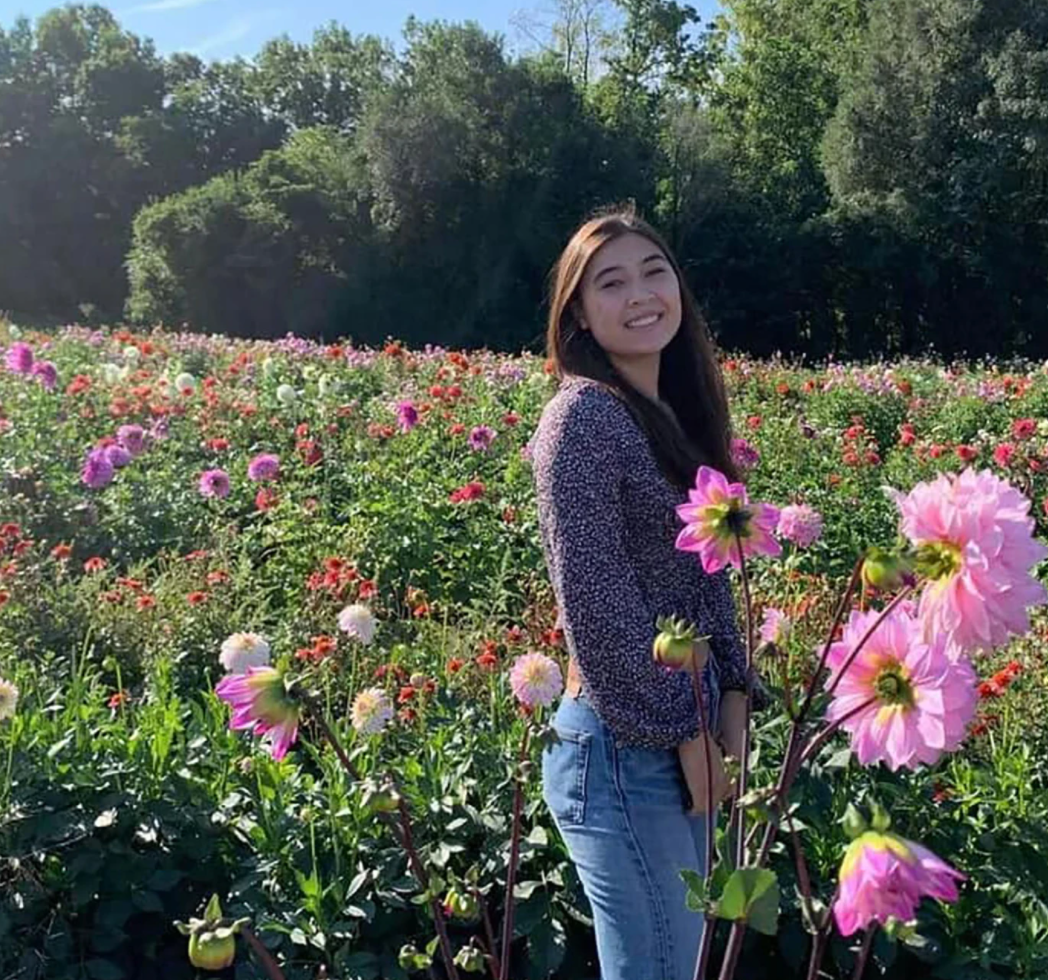
Your support helps us to tell the story
From reproductive rights to climate change to Big Tech, The Independent is on the ground when the story is developing. Whether it's investigating the financials of Elon Musk's pro-Trump PAC or producing our latest documentary, 'The A Word', which shines a light on the American women fighting for reproductive rights, we know how important it is to parse out the facts from the messaging.
At such a critical moment in US history, we need reporters on the ground. Your donation allows us to keep sending journalists to speak to both sides of the story.
The Independent is trusted by Americans across the entire political spectrum. And unlike many other quality news outlets, we choose not to lock Americans out of our reporting and analysis with paywalls. We believe quality journalism should be available to everyone, paid for by those who can afford it.
Your support makes all the difference.That Tuesday began much like any other day for Steve St. Juliana.
“I took my daughter Hana to the bus stop, dropped her off and then went to work,” he tells The Independent. “It was just like a normal day.”
Hours later, he got a text from his oldest daughter Reina that would change his family’s life forever.
There had been an active shooter at Oxford High School where she and Hana were students.
Mr St. Juliana rushed to the Meijer Garden Centre, joining other parents who were desperately gathering to reunite with their children who had escaped from the gunfire.
Reina was safe but Hana was missing.
“We were just waiting and waiting and waiting,” he says. “That was the worst — the waiting... It felt like a long time before the Sheriff’s Office then informed us that she had been killed.”
Hana was the youngest victim killed that afternoon of 30 November when fellow student Ethan Crumbley allegedly took a handgun to their Michigan high school and murdered four of his classmates.
Hana was just 14 years old.
Sixteen-year-old Tate Myre and 17-year-olds Justin Shilling and Madisyn Baldwin were also killed in the rampage.
Hana’s father describes his daughter as someone who was “always making people laugh and making them feel good”, but also had a “mischievous side”.
“She was big into sports just like her older sister - she was a volleyball player, basketball player,” he says.
“The basketball season had just started so she was really focused on that and she was also looking forward to trying out for the lacrosse team in the spring.”
When she wasn’t playing sports, Hana had several other “miscellaneous hobbies”, Mr St. Juliana adds, including “making jewellery for her friends and sister and mom”.
Now, her parents, sister Reina and brother Noa have been left to spend the holidays without the “heart and soul of the family”.
“We’re just staying at home and trying to get through the holidays,” says Mr St. Juliana.
“We’re just taking it day by day, trying to go through the motions. But the heart and soul of our family has just been ripped out so it’s hard to make sense of things.
He adds: “Nobody ever thinks something like this will really happen.”
The ‘public health epidemic’
Yet the sad reality is that, while school shootings and mass shooting rampages have dominated headlines for decades, gun violence in America is worse than ever before.
Data from the Gun Violence Archive reveals that, during Donald Trump’s presidency, deaths from gun violence soared.
During Mr Trump’s last year in office in 2020, 19,411 people lost their lives to gun violence — a 43 per cent increase from 2015, the year before he was elected.
Among the victims killed or injured in 2020, 4,142 were teenagers and 999 were children.
Mass shootings also almost doubled throughout the administration, rising from 382 in 2016 to 611 in 2020.
In that time, the US endured its deadliest mass shooting in modern history — when 58 people were murdered at a Las Vegas music festival in 2017 — and its deadliest high school shooting — when 17 students and staff were murdered at Marjory Stoneman Douglas High School in Parkland, Florida, in 2018.
Such was the escalation in gun violence that, during the 2020 race for the White House, Joe Biden declared it a “public health epidemic” and ran his campaign on promises to bring an end to lives being lost.
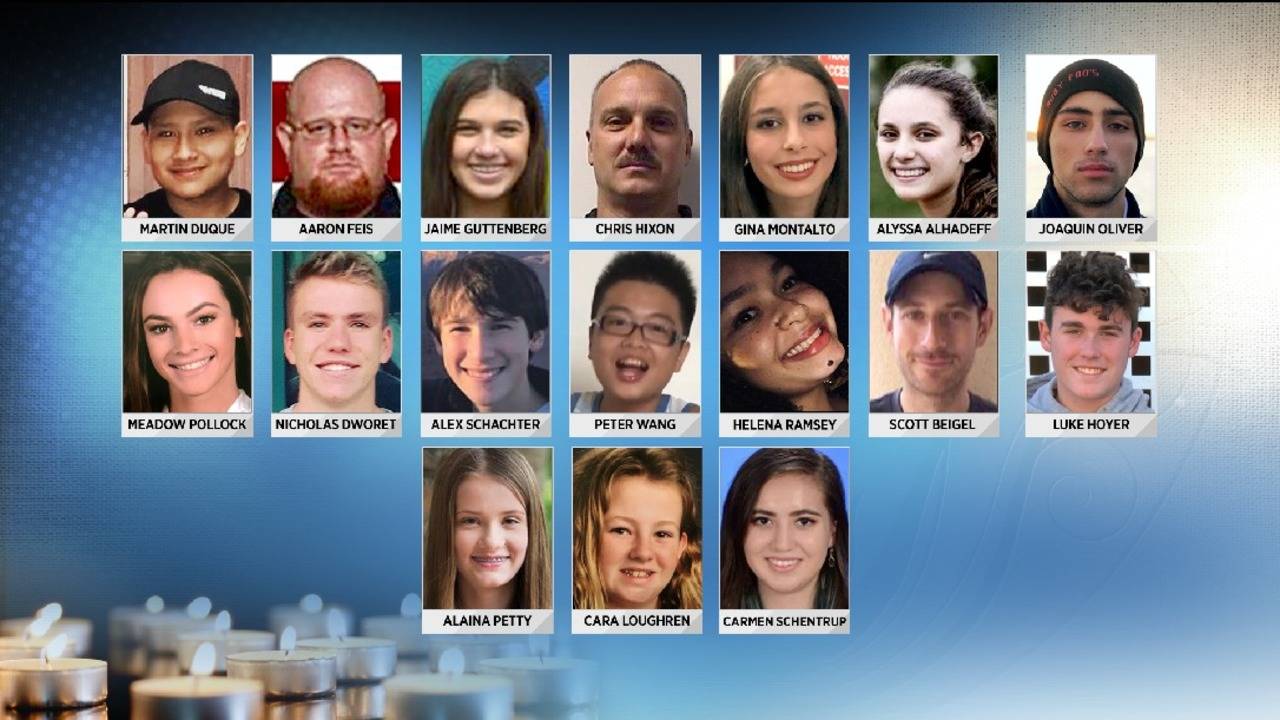
His plans involved several sweeping gun control measures which would put greater responsibility on both gun owners and manufacturers.
He vowed to introduce “common sense” policies and legislation around universal background checks, red flag laws, a ban on the manufacture and sale of assault weapons and high-capacity magazines, and to close loopholes in current laws that allow guns to fall into the wrong hands.
But, since Mr Biden took office, gun violence has actually worsened with 676 mass shootings in 2021 as of 22 December, higher than the number for the whole of 2020.
More lives were lost to gun violence in the last year than any other year on record, with 20,101 people killed.
The November massacre in Oxford was the worst high school shooting since Parkland.
A melting pot
For Fred Guttenberg, a gun control activist whose 14-year-old daughter Jaime Guttenberg was killed at Parkland, what the US is witnessing now is the after-effect of the Trump administration, the Covid-19 pandemic and a dramatic increase in the number of guns on the streets of America.
“When my daughter was killed in 2018, there were about 300 million weapons on the streets of America. Now there’s about 400 million,” he tells The Independent.
Mr Trump, he says, “used his bully pulpit to arm more Americans” loosening firearm restrictions and pushing rhetoric for people to take up arms.
Then, when the pandemic hit and the economy shuttered, gun stores stayed open as they were classed as essential businesses.
“So we saw a surge in gun sales in the country and now we’re paying the price,” he says.
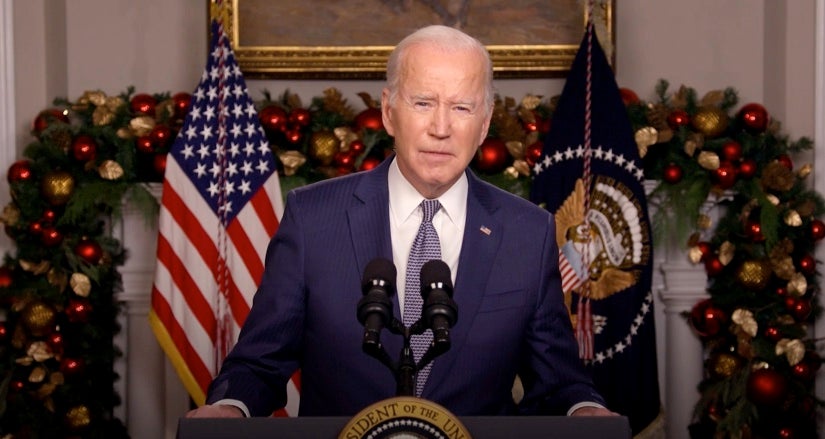
Stark new research, by Northeastern University and published in the Annals of Internal Medicine in December, reveals that 5 million Americans became gun owners for the first time during the pandemic - more than double the number in 2019.
The pandemic played a part in the rise in gun violence in other ways too, explains Manuel Oliver, whose son Joaquin “Guac” Oliver was also killed at Parkland.
“More people lost their jobs, more people lost loved ones, more people were struggling with mental health,” he tells The Independent.
When lockdowns lifted and people reentered society “we were then left with a melting point which was a lethal combination,” he says.
‘Disappointing’ progress
Now, gun control activists are looking to the Biden administration to tackle the problem, but many feel progress so far has been slow.
On December 14, the ninth anniversary of the mass shooting at Sandy Hook Elementary School where 26 children and staff were killed, Mr Biden addressed the nation reeling off a list of steps his administration has taken around gun violence since his inauguration.
In April, he introduced six executive actions including a crackdown on “ghost guns”; directing the Justice Department to put forward models of red flag legislation and a report on firearms trafficking; a $1bn investment in community violence intervention (CVI) programmes; tightening regulations on pistol-stabilising braces; and nominating David Chipman as Bureau of Alcohol, Tobacco, Firearms and Explosives (ATF) director.
(Mr Chipman’s nomination was later withdrawn when it became clear he wouldn’t get enough Republican support in the Senate for confirmation.)
Mr Biden’s Build Back Better bill also includes $5bn in funding for CVIs to help tackle gun violence - programs he has previously encouraged states to use $350bn pandemic relief money to invest in.
Mr Biden’s address, however, came at an interesting time as the president was beating back criticism that his administration hadn’t done enough.
It came 14 days after Mr Oliver set up camp outside the White House vowing not to move until he got a meeting with the president about his plans to tackle gun violence in the wake of the Oxford school shooting.
“I refuse to think Joe Biden is not concerned about gun violence,” he told The Independent in an interview on day nine of his crusade.
“But I don’t see any responses from the administration that shows this really is a priority.”

‘What if I had done more?’
Michigan State Senator Rosemary Bayer, whose district covers the tight-knit community of Oxford, tells The Independent that students and parents there also want to see action.
“Right now the community of Oxford wants to feel safe. The kids are really freaked out,” she says.
“How terrible that children feel afraid to go to school - it should be a fun place for them. We’re not doing a good enough job right now for our children.”
The community has rallied round each other in the aftermath, but many - including herself - are asking “what if I had done more?”.
As the chair of the Firearm Safety and Violence Prevention Caucus, Senator Bayer has introduced and sponsored several bills for gun reform including legislation for universal background checks, safe storage and restricting the size of gun magazines.
This last bill was to be introduced the very same week as the school shooting and is the one which the senator says there’s no doubt “would have made a difference” that day.
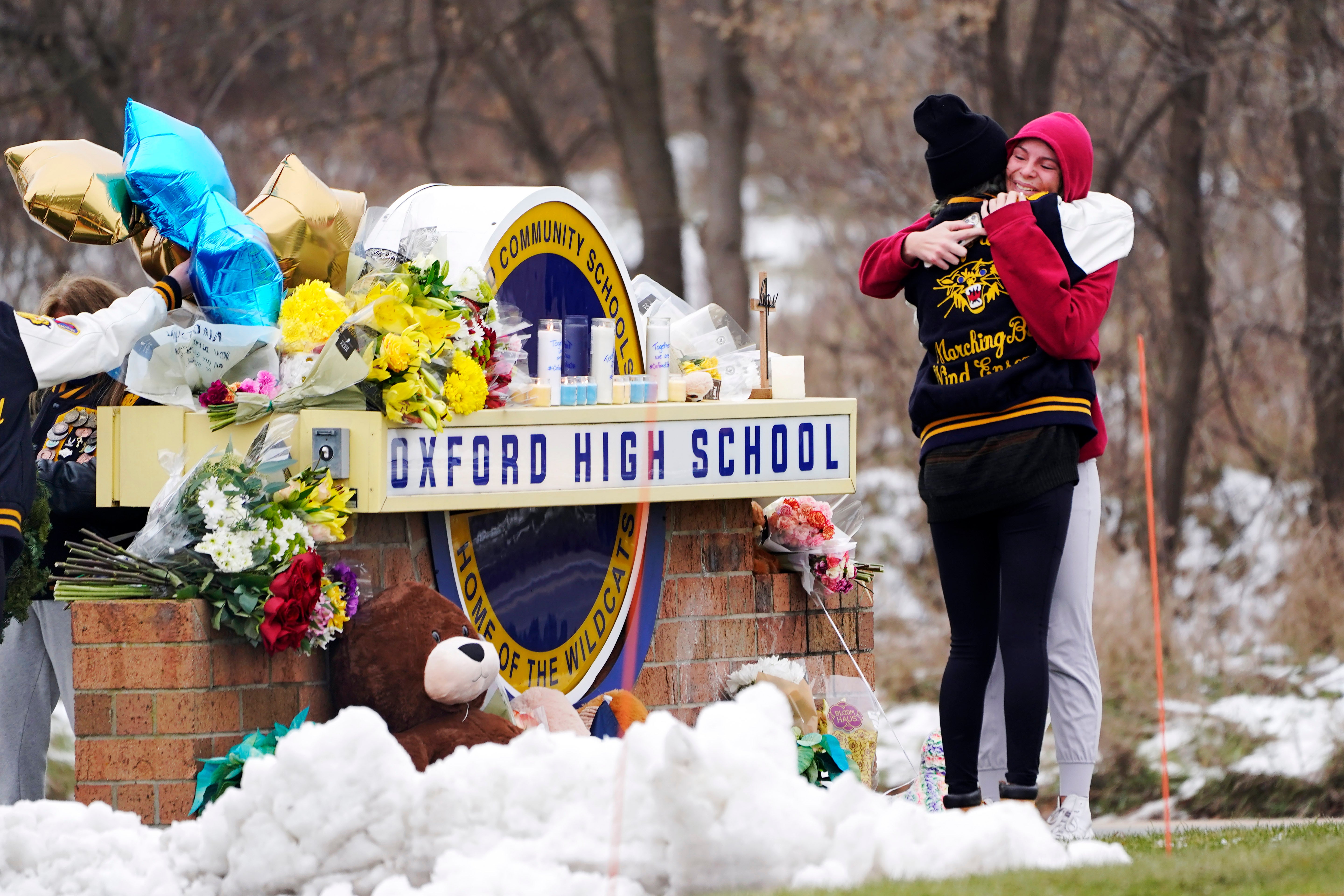
It was introduced the following week and, if it passes, it would ban the selling or possessing of magazines holding more than 10 rounds of ammunition.
Officials said Mr Crumbley had three 15-round magazines when he opened fire inside the school.
“I can’t help thinking ‘what if we had this bill already in place?’ He would have had less bullets,” says Senator Bayer.
However, such gun reform bills have repeatedly stalled in the Republican-led state senate.
Which is partly why federal legislation is so crucial, says Senator Bayer.
“We are battling this in every state so why can’t we come up with a national solution?” she says.
So far, she says progress from the Biden administration has been “disappointing” but she acknowledges that the president cannot tackle the issue alone,
For gun safety legislation to come into law, it needs to pass the House and Senate. And, with a 50-50 Senate split this is a major challenge for the Democratic president.
“The Biden administration has already done more than any other administration on this issue,” says Mr Guttenberg.
“But there’s a limit to what can be done without legislation and that’s where the paralysis of our Senate becomes a factor.
“The reality is we have elected leaders who are treating guns in a way that incites and inspires violence.”
Holiday traditions
Two Republican lawmakers in particular have come under fire for failing to take the issue of gun violence seriously after they showed off their family holiday cards while Hana’s family was preparing for their first Christmas without her.
Holiday cards have been an American tradition for decades: parents and children posing around a Christmas tree for a family portrait to be shared during the festive season.
But there was one glaring difference.
Nestled in the hands of each of the smiling family members were military-style rifles.
Rep. Thomas Massie was first to share such a portrait on social media just four days after the Oxford massacre and on the very same day that the alleged gunman’s parents were arrested following a high-profile manhunt.
By then, it had also emerged that the teenager was given the gun as an early Christmas present from his parents.
While a backlash was erupting over Rep. Massie’s post, Rep. Lauren Boebart decided to follow suit, sharing a photo of her four young sons waving rifles in front of their Christmas tree.
These images show the uphill battle the Biden administration faces in getting bipartisan support for legislative change, explains Debbie Mucarsel-Powell, former Florida congresswoman and senior advisor for Giffords gun control organisation.
“What’s happening here is the most extreme Republicans are embracing and openly supporting reckless gun ownership and they have become much more extreme in their opposition to any kind of gun safety measures,” she tells The Independent.
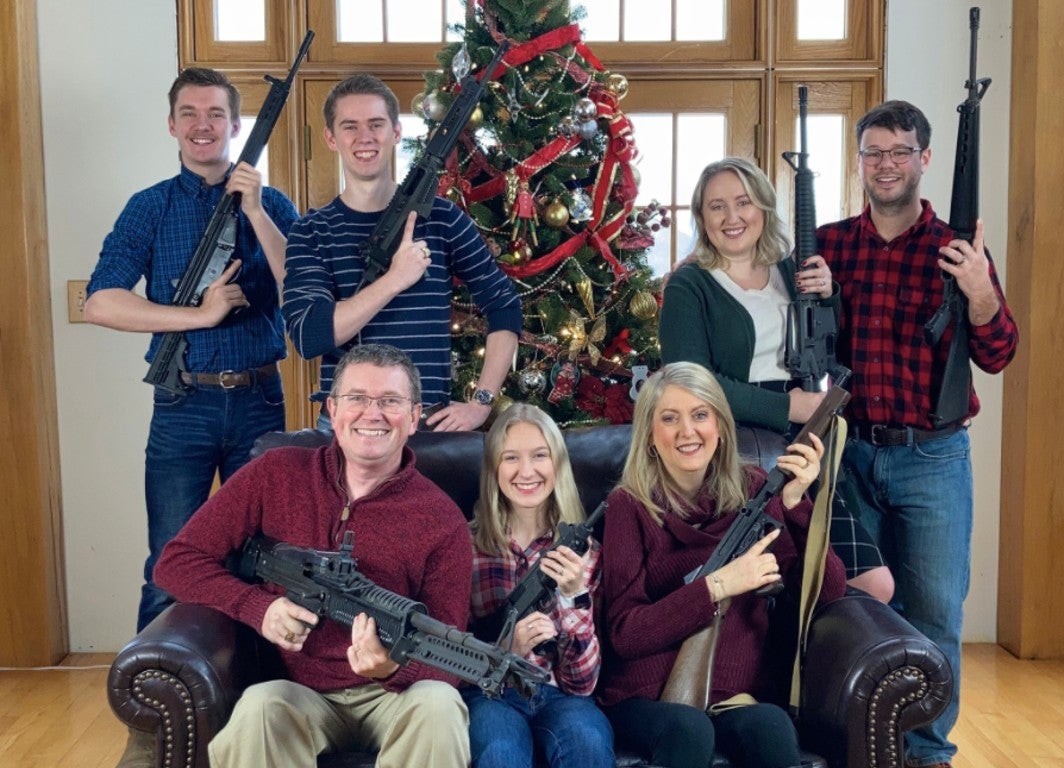
“These images incite violence. And they are mocking the pain of families who have lost family members to gun violence.”
Ms Mucarsel-Powell knows the personal pain of losing a loved one to gun violence all too well.
At the age of 24 when she was studying for her Masters degree in California, she received a call from her sister telling her that their father had been shot and killed back in Ecuador.
“It’s a pain and trauma you carry with you all through life when you lose someone in such a violent manner - it never goes away,” she says.
It was this personal experience, and the Parkland shooting, that she says led her to make gun safety reform a priority when she was elected as a Florida representative in 2018.
But, since then, increased “radicalisation” within the Republican party has made it even more challenging for lawmakers to act, she says.
“Because of the rise in radicalisation in the Republican party, the rise in violent rhetoric coming from Congress members rallying their base to arm themselves, it is now harder for more moderate Republicans to act,” she says.
Power at the ballot box
But while lawmakers have made gun control a partisan issue on Capitol Hill, it may not be as red or blue among the general population.
Instead, research suggests that the American people — Democrats, Republicans and responsible gun owners — are largely united around wanting gun safety.
A March 2021 poll from Morning Consult and Politico found that 84 per cent of all voters, including 77 per cent of Republicans, support a law requiring a background check for all gun purchases.
“The American people want to close the loophole in the federal background check system and that goes across all party lines and gun owners,” says Mark Barden, who cofounded the Sandy Hook Promise Action Fund when his son Daniel was killed at Sandy Hook.
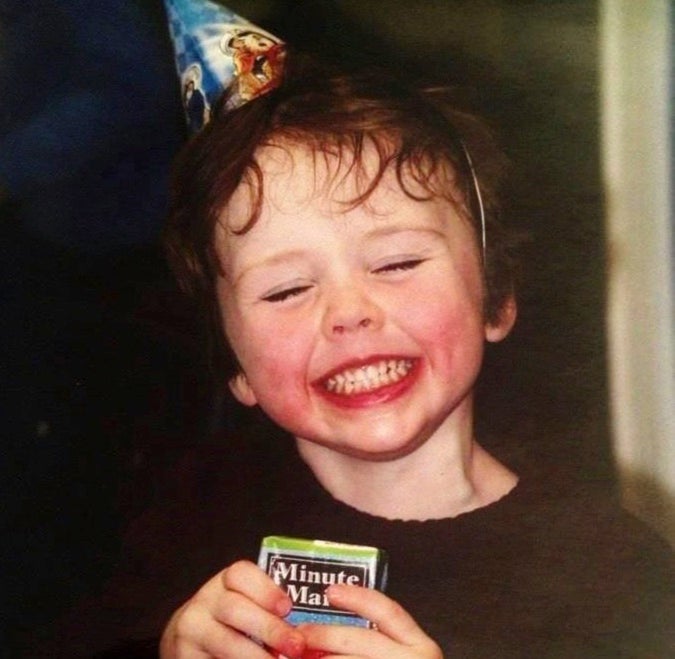
“Responsible gun owners have always advocated for responsible gun safety,” he tells The Independent.
“So there’s certainly a disconnect between the elected officials in Congress and the people who elected them.”
If members of Congress won’t listen to what the public want and ensure children are safe in schools, it then comes down to the American people to vote for lawmakers who will in the 2022 mid-terms, says Mr Barden.
“It’s up to us Americans to use our voices to demand solutions to this shooting epidemic from our elected officials,” he says.
“If they are unwilling to have that conversation then we need to go and vote for people who will.”
The ‘bare minimum’
The “bare minimum” needed by way of legislation to save lives is universal background checks, he says.
“We know there is a glaring loophole in the background check system so, at the very least, we need to close that,” he says.
“It’s not going to save every single life but it will save many.”
Another crucial policy, he says, is safe storage legislation.
Safe storage laws hold gun owners to account if they fail to store their firearms securely to prevent them from falling into the hands of children or other people not authorised to carry them.
While children are not allowed to own guns in Michigan, the state does not currently have a safe storage law in place.
But despite this, prosecutors took the landmark step to charge Mr Crumbley’s parents in connection to the Oxford high school massacre.
Prosecutor Karen McDonald said that James and Jennifer Crumbley bought their son the firearm and gave him “total access” to it.
It’s a story people have heard many times before.
According to a Washington Post review in 2018, out of 145 school shootings carried out by children since the 1999 Columbine High School massacre in Colorado, the source of the weapon was identified in 105 cases.
Of these cases, 80 per cent of the time the gun was taken from the child’s home or the home of a friend or relative.
Setting a precedent
However, despite the common theme, it is almost unheard of for the gun owner to be criminally charged and so the decision to charge the Crumbleys with four counts of involuntary manslaughter has set a major precedent in the way mass shootings are dealt with in the criminal justice system.
Mr St. Juliana says he is “fully supportive” of the Crumbleys being charged over his daughter’s killing.
“It’s disbelief that these so-called parents could act like this and be this grossly negligent,” he says.
“I absolutely think it’s the right thing to prosecute them - not only for this case but for the future too, as it needs to be set in stone that when a parent is providing a weapon to a minor they need to be held responsible.”
According to Mr Oliver, it’s a move that may well be “transformational” in bringing about gun reform where irresponsible gun owners are held to account.
“There’s always a story behind the gun, who bought it and how they got it,” he says.
If the Crumbleys are convicted, it will “amplify the discussion and remove the idea that it is just a crazy kid acting alone in these situations”, he says.
“The parents were also involved in the loss of four beautiful lives.”
Ms Mucarsel-Powell agrees that the outcome of this tragedy could “set an important precedent to pass safe storage laws” and “open up discussions around what it means when adults give arms to children”.

Spotting the red flags
Of course, in the case of the Oxford High School shooting, the red flags were there.
Prosecutors said the parents knew their son was depressed, was fascinated with guns and had been torturing animals.
Then, the day before the shooting, a teacher found Mr Crumbley searching for ammunition online.
Then, on the morning of the massacre, he was found to have drawn violent images of a handgun, a bullet and a person lying in a pool of blood on a maths paper with disturbing phrases including “the thoughts won’t stop, help me” and “blood everywhere.”
His parents were called into the school and asked to take their son home. They refused.
School officials then allowed Mr Crumbley to return to lessons where, just hours later, he opened fire.
Training students and school staff to spot the warning signs can save lives, says Mr Barden.
The Sandy Hook Promise offers a free program called Know the Signs to schools across the country as well as anonymous community reporting systems so that action can be taken to prevent mass shootings.
“I know we have prevented many school shootings by students recognising the warning signs and people stepping in and stopping acts of violence before they happen,” he says.
“There are almost always warning signs so people need to be trained to recognise them.”
Mr St. Juliana describes his “pure disbelief” over the school’s decision to “simply release” Mr Crumbley back into the classroom in light of the “warning signs”.
“If there’s any doubt of potential violence that needs to take priority over this weak argument that we have to educate them,” he says.
“In reality, missing two days of school is nothing... His right for an education does not trump the right of my child to a violent-free environment.”
The grieving father says there were concerns at Oxford High School school for some time, citing one “unrelated” incident where a student left a deer’s head at the school a month before the massacre.
The threat of gun violence was more of a “general” concern that both the school and he and his wife had discussed with their children.
“There’s been specific instances discussed at school but mostly it was a general discussion of what could happen but no one ever thought it actually would,” he says.
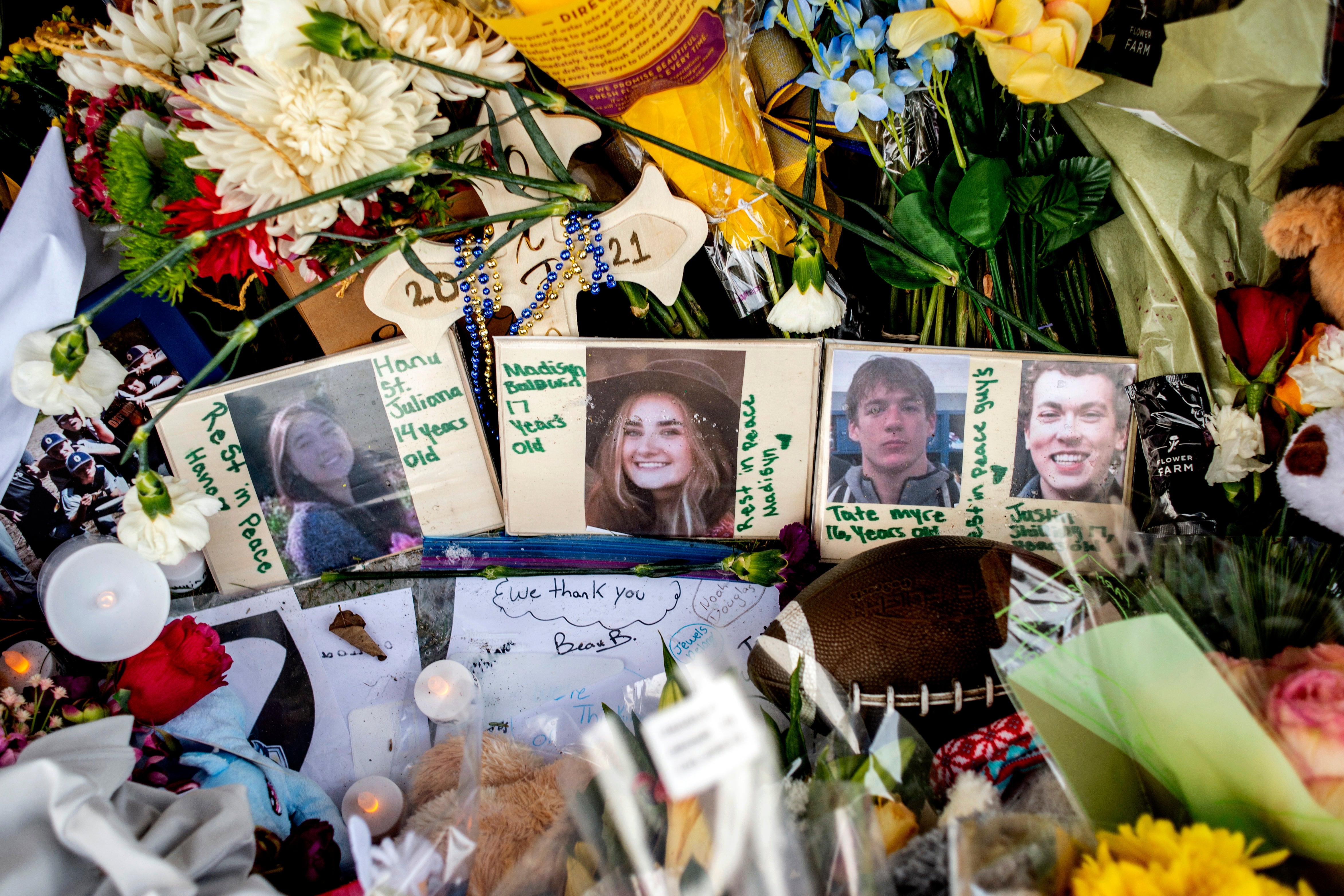
The fact that school shootings are something Americans must teach their children about is in itself “unfathomable”, he says.
“It’s kind of unfathomable that we have to have these types of discussions with our kids,” he says.
Mr St. Juliana says he and his wife raised their children in Japan for many years before moving back to America in 2013 when Hana was about six.
“So we know first hand what it’s like to live in a country and a culture where firearms and shootings aren’t normal,” he says.
Second Amendment right
Part of the challenge with changing this culture, Senator Bayer explains, is the need to dismantle the myth that gun reform is about taking away guns from responsible gun owners and infringing on Second Amendment rights.
“None of the legislation we’ve put forward in Michigan takes anyone’s guns away from them,” she says.
“We need to get people to realise that this is about safety, about making it safe for your kids to go to school and not about taking your guns away.
“Most gun owners are responsible, it’s just the bad ones that we’re trying to do something about.”
In the absence of Senate support and gun reform legislation, Ms Mucarsel-Powell says there is still plenty that Mr Biden can do in the new year to try to end gun violence.
Nominating and confirming a new ATF director swiftly is an urgent first step, she says, as this role gives oversight on a national level.
“And [Mr Biden] needs to spend time pressuring lawmakers in the Senate who continue to block legislation,” she says.
Mr Barden is hopeful that the president can bring both sides of the political aisle together on this issue.
“Biden has created a reputation for himself throughout his career as being able to bridge across the partisan divide and unite folks on both sides of the political spectrum around solutions for the greater good,” he says.
“I am hopeful that, through conversations about protecting our children and making communities safer, he can lead Congress into enacting meaningful gun safety policy.”
The work, it appears, has already started.
2022: A year for change?
After 17 days outside the White House, Mr Oliver finally got his meeting.
He and Mr Guttenberg met with several senior White House officials in what they hope is the start of many meetings to bring about real change.
Mr Guttenberg says the “conversation went really well” and that he is “confident” that the country will start seeing changes as a result of that meeting.
“I feel really confident that you will see a more active role from the president in how he communicates about this and the action he takes on gun violence,” he says.
Real change is in touching distance, he adds: “We’re closer than we’ve ever been to passing gun safety legislation but we’re also closer than we’ve ever been to losing it.”
Over in Oxford, Senator Bayer says people are planning marches and meetings with lawmakers to make sure their suffering doesn’t simply become yesterday’s news.
“This has happened in the past, people give their thoughts and prayers, then they move on and the next one happens. We’re going to do everything we can to keep the visibility,” she says, adding that she is “optimistic” that 2022 will be the year change will happen.
Hana’s older sister Reina is already building on this momentum in Michigan, joining a meeting with state Attorney General Dana Nessel and other students, parents and educators before Christmas.

Mr St. Juliana says she and Noa are “doing better than expected” in unimaginable circumstances.
But as well as coming to terms with Hana’s death, Reina is also facing the prospect of returning to the place her sister was killed.
“She wants to stay at the school and finish high school with her friends but she hasn’t been back there yet - it’s yet to be seen,” he says.
Right now, he says, his family is just focusing on getting through their first holiday season without Hana.
But, in the new year, Mr St. Juliana hopes to see changes around gun safety in America.
“It’s obvious that change needs to happen. As a nation, as parents, we are failing and we can’t continue to just accept the status quo,” he tells The Independent.
“Columbine was 20 years ago and every year we go through the same thing in one town or another in the US and it’s flat out crazy that we keep ignoring it and keep coming up with excuses for why we can’t do anything.
“These are our children… There’s nothing more important.”




Join our commenting forum
Join thought-provoking conversations, follow other Independent readers and see their replies
Comments